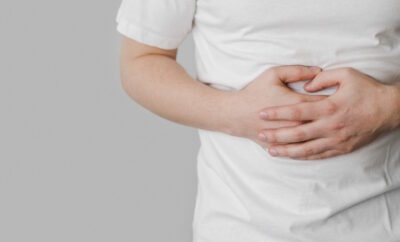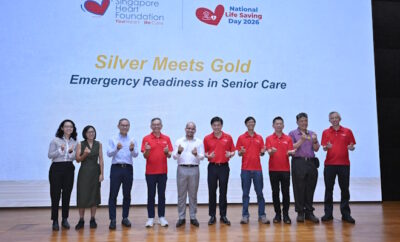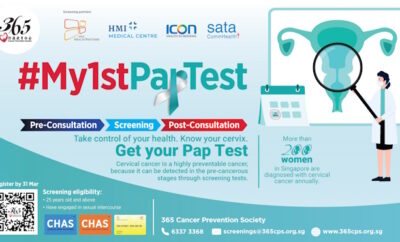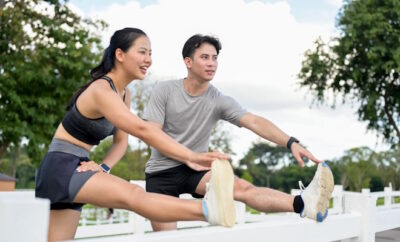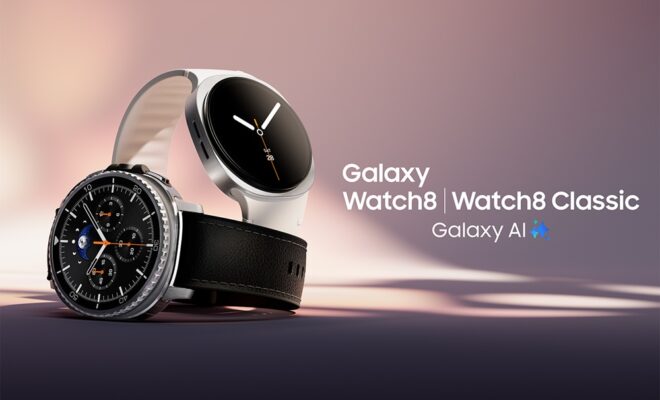
The Gen XY Lifestyle
Can’t Switch Off at Night? Samsung Thinks Your Watch Can Help
If you’re between your mid-thirties and mid-forties, chances are you’re juggling a lot. A recent survey from Samsung confirmed what many of us already feel: this is a high-stress demographic, especially for women managing the dual demands of a career and family life.
A key consequence? An “inability to switch off,” which 28 percent of people across Southeast Asia and Oceania reported as a major concern for their sleep.
The data shows adults in the region are getting, on average, just 6 hours and 50 minutes of sleep a night—falling short of the recommended seven to nine hours. It’s a sleep gap that impacts everything from our mood to our long-term health.
At the recent World Sleep 2025 conference in Singapore, Samsung showcased its latest response to this problem, arguing that the key to better rest might already be on our wrists.
“Sleep is a cornerstone of health, and at Samsung, we are committed to helping people understand and improve it,” said Jong Min Choi, Vice President of Health R&D at Samsung Electronics. “We are proud to demonstrate how our innovations can translate complex biometrics into clear, actionable insights that help individuals take meaningful steps towards better everyday well-being”.

Beyond Just Counting Sheep
The new Galaxy Watch8 Series is at the heart of this push, moving beyond simple tracking to offer proactive, personalised guidance. A key example is Bedtime Guidance, which does more than just note when you fall asleep.
The feature uses your sleep data from the past three nights and your desired wake-up time to recommend the best time to go to bed. It’s powered by a sophisticated algorithm, developed with the Korea Advanced Institute of Science & Technology (KAIST), that balances your body clock with your natural sleep pressure to provide science-backed advice.
The watch also provides detailed feedback through its Energy Score and Sleep Score. The AI-powered Energy Score, as Choi explains, evaluates your physical and mental state by analysing four factors: Sleep, Activity, Sleeping Heart Rate, and Sleeping Heart Rate Variability. Meanwhile, the Sleep Score focuses on the previous night, considering metrics like how long it took you to fall asleep, your total sleep time, and your REM stage to provide a clear measure of your rest quality.
Critically, the watch also tackles a serious, often undiagnosed, health issue with its Sleep Apnea feature. It can detect signs of moderate to severe obstructive sleep apnea (OSA) over a two-night period for users over 22 who haven’t been diagnosed before.
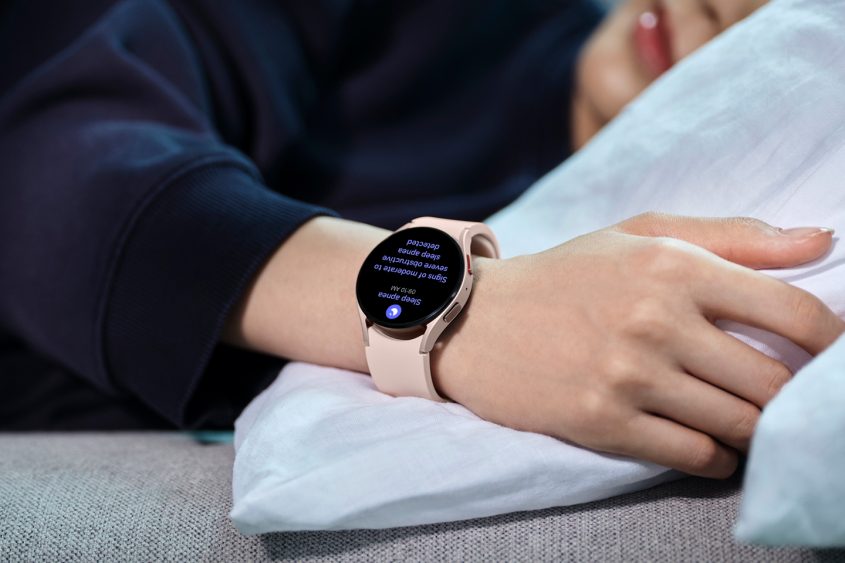
Adding significant credibility, Choi notes that the feature has been approved not just by the U.S. FDA, but also by Australia’s Therapeutic Goods Administration and Singapore’s Health Sciences Authority.
A Renewed Focus on Women’s Health
Samsung is also turning its attention to the specific health needs of women, particularly those navigating mid-life changes. Choi confirms that the watch’s sensors can detect changes in skin temperature and electrodermal activity (sweat), which “can help women in perimenopause identify if they experience hot flashes during sleep.”
This practical application is backed by dedicated research. Choi highlights a collaboration with pharmaceutical leader Bayer to study sleep disturbances in menopausal women, using the Galaxy Watch to collect data. It’s a clear signal that the company is invested in providing meaningful health tools for this often-overlooked stage of life.
A More Holistic View of Health
Samsung’s vision extends beyond the bedroom. A standout feature is the Antioxidant Index, which Choi describes as an “industry-first feature that measures carotenoid levels in just five seconds.” Using a BioActive Sensor, the watch analyses nutrients in your skin that reflect fruit and vegetable intake, giving you a score from 0–100.
This score, Choi explains, shows how your diet, stress, alcohol intake, and even sun exposure are impacting your body’s cellular defences against oxidative stress, which is linked to aging and chronic disease. The goal is to provide instant feedback and motivation. “By showing the impact of small changes like drinking green juice,” Choi adds, “it can motivate you to adopt healthier habits over time.”
It’s a powerful tool that, combined with advanced sleep coaching and preventative health alerts, aims to turn complex data into a clear, unified picture of your well-being.
VP Choi had a short Q&A with the Active Age on the sidelines of the World Sleep 2025 conference where we dived deep into the features and capabilities of the Galaxy Watch8 Series specific to health and sleep.
the Active Age (AA): Can you explain how the circadian rhythm feature works?
Jong Min Choi (JMC): Bedtime Guidance uses your sleep data from the past three nights and your desired wake-up time to recommend the best time to go to bed. It’s powered by an algorithm developed in collaboration with the Korea Advanced Institute of Science & Technology (KAIST), based on the two-process model of sleep regulation, which balances sleep pressure and circadian rhythm. This feature offers personalised, science-backed recommendations that promotes better sleep.
AA: What is the formula or perspective that the app takes regarding calculating energy and sleep scores?
JMC: The Galaxy AI-powered Energy Score is calculated by evaluating your physical and mental conditions across four significant factors – Sleep, Activity, Sleeping Heart Rate and Sleeping Heart Rate Variability. The feature helps users not only better understand the ways their health influences daily life, but also provides insights based on their current physical states to focus their daily efforts on making improvements.
As for the Sleep Score, factors like sleep onset latency, sleep efficiency, sleep duration (the total sleep time) and REM are critical. The Sleep Score is based on the sleep pattern from the previous night and is designed to give higher scores when a user has had good sleep. We continue to advance research into these metrics to help people better understand their sleep.
AA: How does it factor in lifestyle variables such as heavy exercise, alcohol intake, or illness? Whether through the stress component, or volume of sleep time etc.
JMC: The Antioxidant Index works through the BioActive Sensor which measures skin carotenoids in five seconds using multi-wavelength absorption spectroscopy. After analysing these carotenoids, which reflects fruit and vegetable intake, you are given a score of 0–100, which is categorised into one of three levels. This score shows how diet, UV light, alcohol and stress are impacting your antioxidant levels. With insufficient fruit and vegetable intake linked to major health risks, this non-invasive metric offers meaningful insights, promotes healthier choices and adds another layer of prevention to your daily routine.
AA: Any updates about women’s health features, especially for middle age to older women?
JMC: The Samsung Health application features a cycle tracker which can be especially helpful for women trying to get pregnant. By monitoring certain patterns, these women can get insights on how their body changes throughout their cycles, helping them to identify optimal time periods for when they could potentially get pregnant.
We are also working with industry leaders to research and advance women’s health through innovative technology. For example, we collaborated with Bayer on a study in 2024 to assess the burden of sleep disturbances in women experiencing menopause, focusing on their impact on quality of life and evaluating the unmet need for effective treatments. Our Samsung Galaxy Watch was used by a subset of study participants as the instrument for data collection over a 28-day period.
Our sensors can detect skin temperature and electrodermal activity, measuring sweat which changes skin conductivity. This can help women in perimenopause identify if they experience hot flashes during sleep.
AA: Any exclusive features that the watch/app you wish to highlight/share?
JMC: The Antioxidant Index in the Galaxy Watch 8 Series is an industry-first feature that measures carotenoid levels in just five seconds. Carotenoids are nutrients found in fruits and vegetables that help neutralise free radicals and support healthy aging.
Determining these levels in your skin helps you understand how well your body is fighting oxidative stress, which is linked to aging and chronic disease. This feature offers instant feedback on how your lifestyle choices, like diet or stress, are affecting your body. By showing the impact of small changes like drinking green juice, it can motivate you to adopt healthier habits over time.
We also continue to enhance our sleep-related features including advanced sleep analysis, personalised coaching, optimising sleep environments, and sleep apnea detection. In fact, the sleep apnea feature has not just been approved by the U.S. Food and Drug Administration (FDA), but also by Australia’s Therapeutic Goods Administration and Singapore’s Health Sciences Authority.
This feature enables users over the age of 22 who have not been diagnosed with sleep apnea to detect signs of moderate to severe obstructive sleep apnea (OSA) over a two-night monitoring period, a common and chronic sleep condition that often goes undiagnosed and untreated. When users are alerted to signs of sleep apnea, they can take steps to seek medical attention and management for the condition.
Q&A responses attributed to Jong Min Choi, Vice President (VP) of Health R&D, Samsung Electronics
Pictures credit to Samsung Electronics

